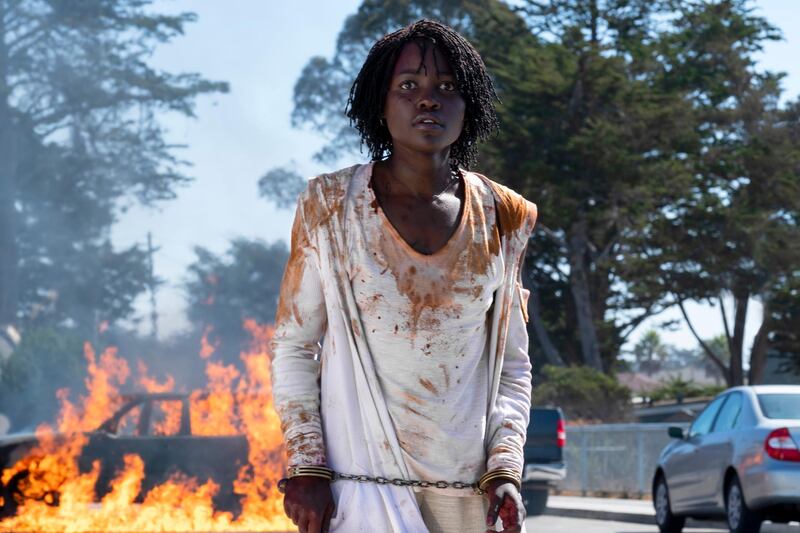Lupita Nyong'o has issued an apology for previously stating she had used a neurological disorder as inspiration for her character in Us.
The actress stars in Jordan Peele's latest box-office smash, playing Adelaide Wilson, a woman with a dark history who travels with her family to her old childhood home. The horror movie finds each member confronted with their own evil doppelganger, and it's this alter-ego for whom Nyong'o used a more strained voice.
The 36-year-old revealed in an interview with the New York Times that she used Robert F. Kennedy Jr as a reference for the character Red's speech, after hearing him speak at an event. The author and activist, a nephew of assassinated US president John F. Kennedy, has spasmodic dysphonia, a condition that causes muscles in the larynx to involuntarily spasm.
The actress was subsequently criticised for her comments, with the National Spasmodic Dysphonia Association saying the disorder "is not a creepy voice; it’s not a scary voice ... It’s a disability that people are living with and shouldn’t be judged on.”

Nyong'o this week clarified her actions, saying in an appearance on talk show The View that her intention was not to "vilify or demonise" the condition.
"I met with people as part of my exploration with the condition, and I learned how difficult it is to have the disorder. So I am very aware of the frustrations and misconceptions and the misdiagnosis ... I thought in speaking about it and mentioning it, it might shed light on the condition," the Oscar-winner said.
“I crafted Red with love and care. As much as it [was] in a genre-specific world, I really wanted to ground her in something that felt real. For all that, I say sorry to anyone that I may have offended.”
The disorder advocate organisation RespectAbility later issued a statement regarding Nyong'o's interview, saying it "appreciated [her] heartfelt apology".
"We hope Nyong’o will use this experience to continue lifting up all marginalised groups including the 1-in-5 people who live with disabilities. In general, the Hollywood practice of using disability primarily to villainise people or to show them as objects of pity needs to end.”







